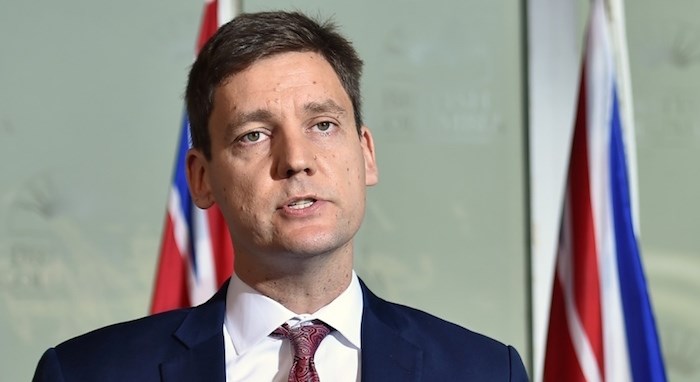Like the rest of us, the B.C. government isn’t sure what to make of Prime Minister Justin Trudeau’s enormous cabinet shuffle Wednesday that saw him remove several key faces that provincial New Democrats had been relying upon for important reforms.
Trudeau pulled the rug out on the housing, justice and public safety files at a time when Premier David Eby’s government felt it was starting to make inroads convincing those ministers to move in alignment with B.C.’s priorities.
Law professor David Lametti was sacked as Attorney General by Trudeau and replaced in the justice ministry by Toronto MP Arif Virani, a human rights lawyer.
It’s not clear what Lametti’s departure means for bail reform legislation he introduced in the spring session of Parliament but failed to pass before the house adjourned for the summer.
Eby and his Attorney General Niki Sharma had spent significant time trying to convince Lametti of the merits of the move to crack down on prolific offenders. They’d travelled to Ottawa several times, raised the issue with Trudeau directly and rallied other provinces to the cause, finally pushing Lametti to act.
Now, all of that is in doubt, as is Eby’s ability to claim progress on fixing the public safety issues that have plagued the province.
“British Columbia expects the federal government to expedite the legislation on repeat offenders,” Sharma said in a statement Wednesday in which she also congratulated Virani.
“Our government led the charge for these changes to improve safety on our streets and in our neighbourhoods. The federal government and all parties in parliament should be united in passing this legislation as soon as possible.”
Still, though, there is unease at the abrupt change.
A similar situation played out on the housing file, as Trudeau replaced Ahmed Hussen with Sean Fraser.
Fraser was most recently the immigration minister who presided over a massive influx of new residents to the country, which experts say is one of the main pressures driving up prices on homes due to the limited supply.
Fraser immediately made waves by telling the media that labour shortages, not immigration, were to blame for housing affordability woes, and that immigration would be part of the solution, not the problem.
"The answer is, at least in part, to continue to build more stock," Fraser told reporters, according to CBC.
"But I would urge caution to anyone who believes the answer to our housing challenges is to close the door on newcomers."
The Eby government had tried to cajole more action out of Hussen on housing, including better aligning federal programs with B.C. funding, freeing up federal land for building projects and helping incentivize municipal councils to speed up development permits. Little has happened.
There is hope that Trudeau’s decision to merge the housing ministry and the infrastructure ministry together will give Fraser more power to put significant dollars behind his housing proposals. Eby recently met with deputy Prime Minister Chrystia Freeland where he pitched a series of tax, economic and policy ideas to boost housing supply.
Another major question mark that emerged from Wednesday’s cabinet shuffle was the removal of Marco Mendicino from the public safety ministry. Trudeau replaced him with New Brunswick MP and Intergovernmental Affairs Minister Dominic LeBlanc, who will retain that portfolio also.
Mendicino's demotion comes in the middle of a review he was supposed to be conducting into the future of the RCMP’s contract policing model. B.C. had been pushing hard behind-the-scenes for better consultation on the RCMP, after Mendicino’s office claimed the province had already been consulted on its views of the future of the Mounties while B.C. Solicitor General Mike Farnworth disagreed.
Eby, meanwhile, had been urging Mendicino and Trudeau to speed up the review and tell the provinces definitively if the RCMP would be remaining as a contract police force.
Mendicino’s departure throws that whole review in doubt, and casts even more confusion over the future of the RCMP and whether B.C. should be planning to move to a provincial police force.
B.C. does retain four members in Trudeau’s cabinet: Vancouver South’s Harjit Sajjan, who was moved to Minister of Emergency Preparedness; Delta’s Carla Qualtrough, who remains Minister of Sport and Physical Activity; North Vancouver’s Jonathan Wilkinson, who remains as Minister of Energy and Natural Resources; and Burnaby North-Seymour’s Terry Beech, who was promoted from the backbench to Minister of Citizens’ Services.
Rob Shaw has spent more than 15 years covering B.C. politics, now reporting for CHEK News and writing for Glacier Media. He is the co-author of the national bestselling book A Matter of Confidence, host of the weekly podcast Political Capital, and a regular guest on CBC Radio. [email protected]



